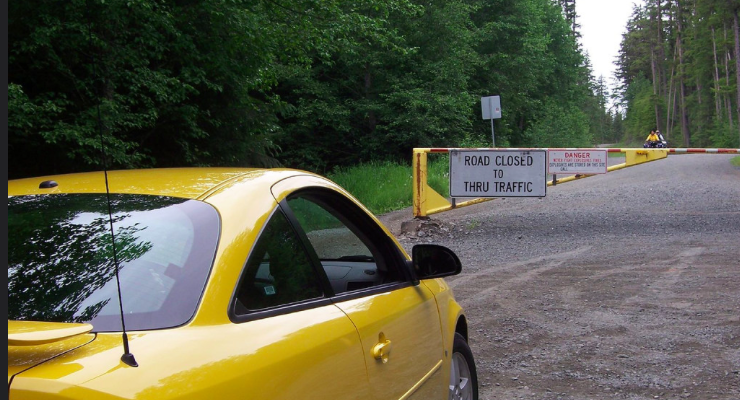By WIN GRUENING
SENIOR CONTRIBUTOR
The results of a recent poll commissioned by First Things First Alaska Foundation in partnership with the City and Borough of Juneau focused attention once again on our capital city’s transportation priorities.
The McDowell Group study surveyed 402 Juneau residents in January about three community transportation issues – the Juneau Access Project, Alaska Marine Highway service, and the North Douglas Crossing.
Nearly 80 percent of Juneau residents indicated support for a North Douglas Crossing – primarily for access, easing traffic congestion, and improving safety and emergency response.
Questions about ferry service and Juneau Access were more revealing.
Building another ferry terminal farther north on the existing road system to provide more frequent day-boat ferry service was supported by 53 percent of respondents.

A “gradual transition to day-boat service wherever possible” was supported by two-thirds (68 percent) of residents, while only 19 percent opposed it.
Slightly more than half of respondents (54 percent) support or strongly support the construction of a road along the east side of Lynn Canal to a shuttle ferry terminal at the Katzehin River. Only 39 percent opposed construction (with slightly less than half of those being strongly opposed).
A quarter of those opposed would be more likely to support the road if it went beyond Katzehin to Skagway. In other words, if the road was built all the way to Skagway – as I believe will eventually happen – support would increase to over 60 percent.
This project, designated Juneau Access Preferred Alternative 2B, will allow travel between Juneau and Haines via eight daily roundtrip shuttle ferry rides (27 minutes-long and less than $20 for vehicle and driver each way).
This compares to the existing Juneau-Haines service of several weekly ferry trips taking up to 4 hours (not counting 2-hour check-in time) and costing several hundred dollars each way.
Unlike previous unscientific polls and anecdotal reporting, this survey reflects strong support for the Juneau Access Project and increased use of “day-boats” allowing the ferry system to transition to more efficient operations.
Survey results reinforce the pro-road resolution passed 6-3 by the CBJ Assembly in January 2017 after Governor Walker halted the project.
The resolution asked Juneau’s Legislative Delegation to support the previously appropriated funds and asked the Alaska Legislature to maintain funding for the project to allow it to proceed at a later time.
Apparently, some legislators were listening. During a recent budget vote, Rep. Lance Pruitt, R-Anchorage, offered an amendment to restore $21 million of road funding lost last year. All Republicans and Independent Jason Grenn of Anchorage supported the amendment.
Ironically, the motion was defeated 20-19 because both Juneau House members, Sam Kito and Justin Parish, voted against it – completely disregarding the regional importance of this transportation project.
Contrast this out-of-step thinking with the elections of Juneau’s mayor, Ken Koelsch, and state senator, Dennis Egan – unabashed supporters of Juneau Access who won their races by huge margins.
Declining ridership, ballooning subsidies, schedule reductions and higher fares now define our ferry system. Ferry breakdowns and stranded passengers continue to make headlines.
Since the need for improved transportation options in Southeast Alaska is undeniable, it’s hard to understand continued resistance to a project that increases vehicle capacity and frequency of service; lowers costs to travelers and the state; and provides economic benefits to Juneau and neighboring communities.
Shortening routes by building roads wherever possible will increase ferry system flexibility and mitigate its burdensome financial difficulties.
CBJ Finance Director, Bob Bartholomew, recently noted that our community has “…lost 800 residents, 500 jobs, and total gross wages are flat,” making the economic benefits of the road even more necessary.
Despite the short-sighted actions of the current governor and Juneau’s own House members, the Lynn Canal Highway remains a viable project that will be restarted when the stars are realigned.
Opponents can cite exaggerated environmental, safety, and cost objections ad nauseum, but most Juneau residents and many in the Legislature prefer real progress to a status quo that exacerbates the economic and demographic challenges facing our region.
Eventually, as this project moves forward – and it will – access to and from the Capital City will be meaningfully improved for all Alaskans.
Win Gruening was born and raised in Juneau and retired as the senior vice president in charge of business banking for Key Bank in 2012. He is active in civic affairs at the local, state, and national level.
